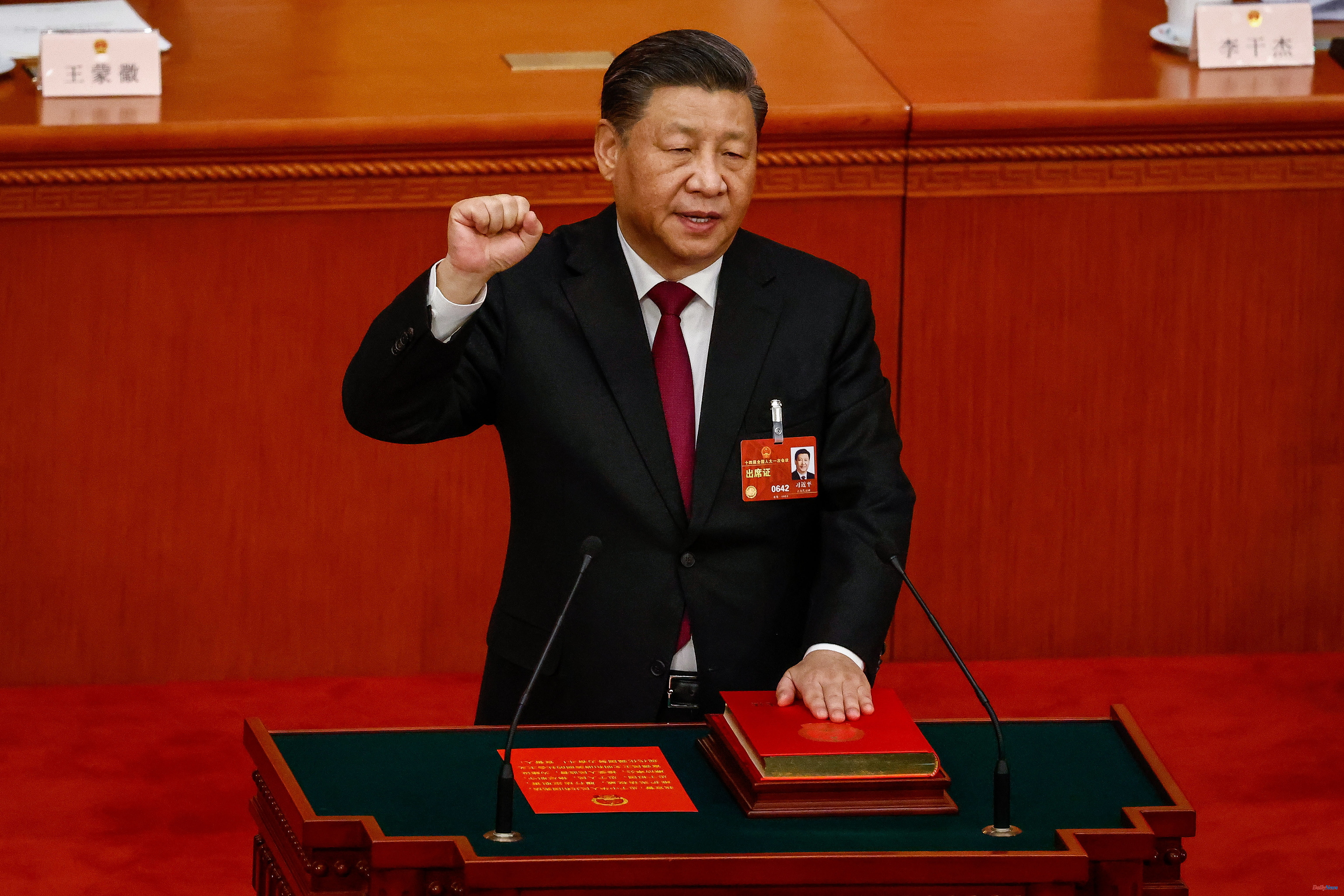In front of a huge audience with nearly 3,000 standing deputies applauding in unison, the son of a comrade-in-arms of Mao Zedong and a revolutionary who fought against the Japanese, has been crowned supreme leader for the second time in five months. Xi Jinping has done it again, but this time in a very official way confirmed by all Chinese legislators.
If he came out of the Communist Party congress through the front door as general secretary of the PCCh, the position of the one who really rules in the one-party regime, this Friday it was time to be re-elected as president of the country. All power concentrated in the hands of a 69-year-old helmsman, who has built an extreme cult of his personality and has named an ideology that is studied in universities and colleges with his name.
The National Popular Assembly (APN), the annual political conclave in Beijing where the leader already eliminated the limits of the presidential term in 2018, has been the scene to seal at least another third five years of Xi at the head of the second world power. There was no room for surprise: Xi was the candidate, in capital letters, and the 2,952 deputies present, in an act choreographed by the party leadership, voted unanimously for the only possible winning electronic ballot. Xi was sworn in as China's president, officially beginning his historic third term.
Beijing has definitively broken with the legacy left by the reformist leader Deng Xiaoping, who opted for a more collective leadership and set limits of no more than two terms so that no ruler would agglutinate as much power as the omnipresent Mao. Xi now officially occupies the top three posts: leader of the Communist Party, president of the People's Republic of China, and commander-in-chief of the armed forces as chairman of the Central Military Commission.
The strengthened President Xi now opens a critical new stage for his country. He must put China back on the path of economic growth after three turbulent years under the yoke of pandemic lockdowns and lockdowns. He is facing a strong demographic crisis, with a population that has fallen for the first time in six decades. Stopping the bleeding of youth unemployment, modernizing the army and seeking technological self-sufficiency are three of the highest priorities of his government.
Away from home, tensions with the United States and the potential conflict over Taiwan are heightening. The Russian invasion of Ukraine also splashes a Xi who has been playing ambiguity throughout the war, calling for a ceasefire and respect for the sovereignty of all countries, while strengthening what he calls a "strategic partnership" with his colleague Vladimir Putin, whom he is expected to visit in Moscow this year.
In today's turbulent geopolitical landscape, the Chinese president is one of the top-tier players. For this reason, these days many analysts are trying to figure out what Xi Jinping will see during this first stage of his third term. A conciliatory Xi who seeks to redirect relations with Washington and mediate with Moscow to end the war in Ukraine? A Xi hardening his rhetoric against the West and embracing Putin tighter as he strives to lead his country to a new hegemony on all fronts, from the military to the scientific?
"Western countries, led by the US, have implemented containment, encirclement and repression measures against us, which has brought unprecedented severe challenges to our country's development," Xi released this week during an NPC session, opening which for many means a new stage of tougher diplomacy from Beijing.
A hard line that was followed a day later at a press conference by the Chinese Foreign Minister, Qin Gang, who issued a warning to Washington. "If the US does not step on the brake and continues to accelerate on the wrong track, no security measures can prevent derailment and there will surely be conflict and confrontation," Qin said.
The meeting of the Chinese Parliament will conclude next Monday after a complete restructuring of the Council of State (the Chinese Executive) is formalized, where Xi will be placing men of his trust who are part of the most Xiist faction of the The CCP, who has already been promoted to the Politburo or its Standing Committee, the power leadership, during the last party congress.
According to the criteria of The Trust Project












